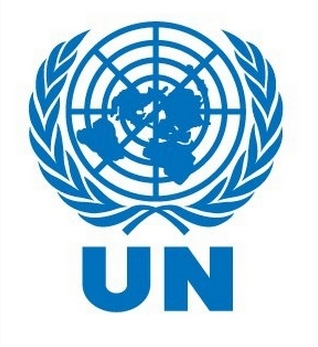The United Nations On Friday lamented that conflicts, mainly from Boko Haram terror activities and killings by herdsmen, have claimed at least 26,000 lives in North-east of Nigeria, while battles globally had displaced over 65 million persons.
The UN Nigeria Representative, Mr. Edward Kallon, disclosed this in Maiduguri, Borno State while marking this year’s World Humanitarian Day (WHD).
Kallon noted that in the North-east, civilians continued to bear the brunt of the conflict that led to widespread forced displacement, abuse and violations of international humanitarian and human rights law.
According to him, women, men, and children face grave human rights violations, including sexual and gender-based violence on a daily basis.
He further disclosed that in the insurgency-affected region, thousands of women and girls had been abducted, while children continued to be used on regular basis as so-called “suicide” bombers.
“Thousands of families have been forced to flee their villages and communities in Borno, Adamawa and Yobe states. Aid and medical workers, who care for people affected by the violence, suffer the consequences of insecurity.
“Three aid workers were killed and three abducted in March this year in Rann; an aid worker was killed in Ngala in May. A member of National Emergency Management Agency (NEMA) was killed in Damasak just last week,” he lamented.
He noted that a vast majority of humanitarians working to provide life-saving aid to people in need were Nigerians and condemned the killings and abduction of aid workers, urging parties to the conflict to allow humanitarian workers discharge their duties as it would facilitate their access to people in need, and in line with International Humanitarian Law.
He also pressed for the release of abducted aid workers.
“I call on Nigerian leaders to do everything in their power to protect the people caught up in conflict. Together, we stand with the Government of Nigeria, in solidarity with civilians in conflict, and with the humanitarian workers who risk their lives to help them,” he declared.
According to him, civilians in conflict zones continue to be killed and maimed, deliberately or indiscriminately, thereby forcing a large number of people to flee from their homes.
The UN Nigeria Representative said: “This year’s commemoration marks the 15th Anniversary of the attack on the United Nations in Baghdad, Iraq, during which 22 of our colleagues were killed.
“Since that tragedy, which led to this day’s designation as WHD; over 4,000 humanitarian workers have been killed, injured, detained or kidnapped.”
He said that the WHD; was to express solidarity with people affected by humanitarian crises and pay tribute to workers that helped victims of conflict and violence.
On devastations of conflicts, he said: “Children are recruited by armed groups and used to fight, while women are also abused and humiliated.”
He observed that though humanitarian workers deliver aid and medical workers provide for people in need, they were, however; targeted or treated as threats.
Governor Kashim Shettima said that 1.5 million people had been displaced by the nine-year insurgency. He said out of the displaced people, 164,000 had returned to their liberated communities in Mobbar, Dikwa, Gwoza, Ngala, Konduga, Bama, Damboa, Mafa and Askira/Uba councils.
He said that Abadam and Marte council areas were not secured enough for IDPs return to their communities.
According to him, the two council areas were vulnerable to insurgents that were recently pushed to the Lake Chad Islands by the military. With Thisday

Comments
Post a Comment